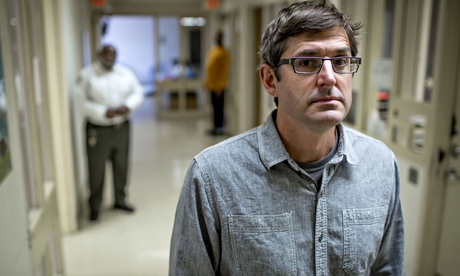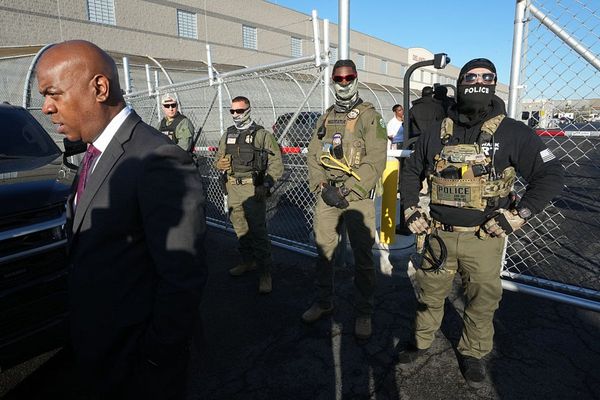
In a corridor in an Ohio state psychiatric hospital one Sunday, two men talk by the vending machine. “Is there a reason you can’t get a drink with caffeine in it?” asks one. The other, who appears to be more familiar with protocol round here, explains that the policy was recently changed, now caffeine is only allowed on weekdays, before noon.
“You know, it’s disappointing, because I do like to self-stimulate, using caffeine,” says the first. Seemingly put-out by the caffeine ban, he paces in an agitated way. “I guess I’ll get water for now, is that what you’re getting?” he goes on, as if looking for some kind of reassurance or approval.
If you were just shown this one little scene, and you didn’t recognise either person, you might guess that they were both patients, the first a more recent arrival while the second had been there for longer and was further into a treatment programme. And you would be half right. He – Jonathan – has been here longer, and is well into his treatment, which is going well, to the extent that he is being considered for a higher privilege level that will allow him to actually go outside the hospital, to have lunch with his mother. The other one, though, the edgy caffeine user – is called Louis, and the programme is called Louis Theroux: By Reason of Insanity (BBC2, Sunday).
Maybe there’s some kind of meeting-halfway going on – sympathetic anxiety, conscious or otherwise. Maybe that’s just the way he is. Maybe he is, in fact, insane. Whatever, Louis Theroux really doesn’t look out of place in a psychiatric hospital.
The patients certainly seem to like and trust him; they tell him stuff they might not tell the staff. Yes, he too wants to know what’s going on in their heads – and the film does gives a genuine insight into mental illness – but his interest is less clinical, more journalistic. He’s on the hunt for stories, including the stories of how they came to be there in first place. (Hell, and they’re some stories!) His interest is also more emotional, and just plain friendly.
“You ask some questions that I may not have thought about before,” says Jonathan, who has been diagnosed with schizophrenia. “You asked me: did I love my father? Previously I gave you an answer something like, well I may have loved him but I didn’t like him very much … If I was asked again it would probably be something like: earlier on in life, yes, I did love him, but as the illness progressed we became more distant.”
Because of the way they’re getting on, as peers almost, I half expected – certainly wanted – Jonathan to ask the same questions back to Louis. Do you love your father, Louis? He’s a famous novelist? Really, that must have been interesting? Was emotional constipation ever a problem in your family too, Louis? But then Louis didn’t kill his father, as Jonathan did.
Jonathan is thoughtful, lucid, intelligent, self-aware, aware of the symptoms of his condition. “If I did start to suspect that someone was hurting me, or plotting against me, or trying to drug or poison me, I can recognise that that’s sufficiently unlikely as to probably require some attention.” You can see why he is being considered for extra privileges, like lunch with his mum, in spite of what happened seven years ago.
Some of the others are doing well too. Cory says it’s insane to think his run-in with the police (he attacked an officer with a poker; the officer then shot him) had any bearing on President Obama’s election. Another, William, now agrees that Benjamin Netanyahu wasn’t telling him to go on the rampage in his car. (Yes it’s serious, as I said, and doesn’t ignore the pain and devastating damage mental illness causes, but that doesn’t mean it can’t be funny at times. It can’t help it. And that’s not a bad thing – mental illness and humour aren’t and shouldn’t be mutually exclusive.) God, I hope the Israeli PM’s re-election last week has no adverse effects on William’s health.
Others patients are making slower progress. On Louis’s first meeting with a nice lady called Judith, she tells him, over a game of cards, that she doesn’t accept her (paranoid schizophrenia) diagnosis. Nor did she stab a lady on the bus with a pair of scissors, she says. It’s only during their second meeting that Judith lets on that she’s Jesus Christ. More progress required, I think, with Judith.







